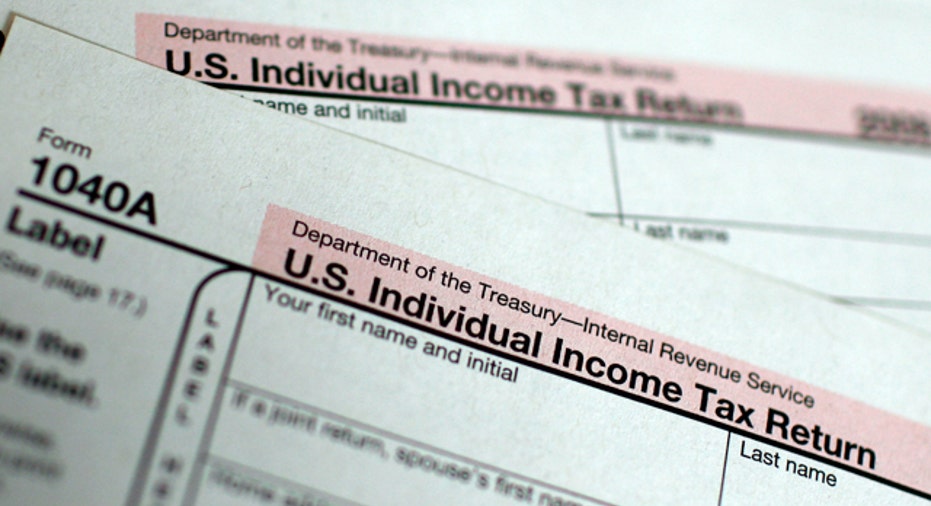Lessons From my IRS Audit

Who panics when being audited by the IRS? Apparently, even the professionals.
Just ask Brad F., a former CPA and current tax attorney whose 30 years experience means he's no stranger to the tax man. Still, when the IRS notified him of an audit of his 2009 personal income taxes, he admits to feeling more than a little nervous.
"It is a nerve-wracking experience," says Brad, who asked that his last name be omitted to protect his privacy. "I was overcome with anxiety and fear that I had made a mistake."
Uncle Sam comes calling
According to the IRS, taxpayers are notified of audits either by phone or mail. Audits are never announced via email. In Brad's case, he received a notification in the mail that instructed him to contact a local office to set up an initial interview.
While Brad notes the IRS agents were very cordial on the phone, they balked at his plan to send another accountant to represent him at the meeting.
"The IRS did not like this," he says. "They really wanted to meet the taxpayer."
Only after Brad signed over power of attorney to another accountant would the IRS agree to allow a representative to speak on his behalf. It was an inconvenience, he says, but one that was well worth it since it gave him some distance from the issue.
"It was the best thing I could have done," says Brad. "Not only did it reduce my anxiety, but it also gave me time to prepare."
Documentation, documentation, documentation
At the initial hearing, the IRS agents gave Brad's accountant a laundry list of items they needed for the audit. Going beyond bank statements, the audit even required him to provide documentation from a family member he had lent money to years earlier.
"All the documentation required amounted to about an 8-12-inch-thick stack of paperwork," says Brad.
After more than three months of collecting documentation and providing the requested information, Brad and his accountant returned to the IRS office to hear the determination. Within all the documentation, the IRS found only one error, which meant a relatively minor change to Brad's return.
Tax audit tips
If you find yourself on the receiving end of an audit, here are five tips that can make the process go more smoothly.
1. Be prepared and be honest: Be proactive by keeping detailed tax records that can support every deduction, credit and exemption. Remember, the IRS can go back seven years. To eliminate the paper clutter, scan your records, back them up at least twice and then shred the originals.
Above all, fight the urge to cheat on your taxes. An honest return may not prevent an audit, but it is easier to defend.
2. Know that audits can happen to anyone: Brad has no idea what triggered his audit, but as his experience demonstrates, anyone can be audited without knowing the cause. However, Paul Jones, a CPA and tax attorney from Salt Lake City, Utah, says some individuals are more likely to win the audit lottery.
"The most common problem is not reporting something on your tax return that was reported to the IRS by a third party," says Jones. "The IRS also looks for certain hot button issues they know are being abused by a certain segment of unethical tax preparers."
According to Jones, these include earned income, education and child tax credits. Other things that can trigger an audit are large deductions, math errors and under-reported income.
3. Get representation: Even if you file your own taxes, you are entitled to representation by a certified public accountant, attorney or enrolled agent. It may be pricey, but the professional fees could be less than the interest or penalties applied by the IRS. Brad notes that not all accountants or attorneys have experience working with the IRS, so taxpayers should look for someone with a proven track record.
4. Don't be difficult: It may be tempting to try to make the field agent's life a little more difficult, but Jones cautions that could backfire.
"There are persons who believe providing a shoe box full of receipts is a strategy to frustrate the IRS and get out of an audit," he says. "However, in my experience, the IRS agents typically just deny deductions if they cannot find the corroborating evidence to support it."
5. Exercise your right to appeal: Finally, remember that even the IRS is fallible.
"You do not have to accept nor should you accept the IRS position," says Brad. "You can argue your position."
Within the IRS, a notice of determination can be negotiated with the field agent and then appealed to a manager and then to the appellate level before going on to tax court.
The virtues of preparation
While no one jumps for joy at the prospect of an audit, there is little to be gained by sweating it out. You can minimize the frustrations of the process by getting organized, getting help where you need it and getting acquainted with your rights.
Want to learn more? Jones recommends all his clients stop by the IRS website to view their video guide on audits.
The original article can be found at Money-Rates.com:Lessons from my IRS audit



















